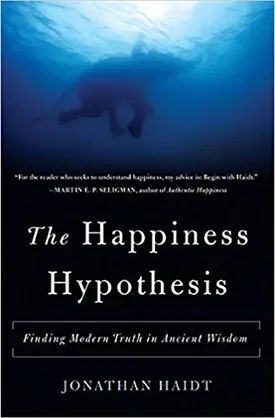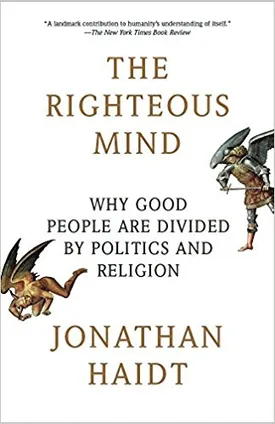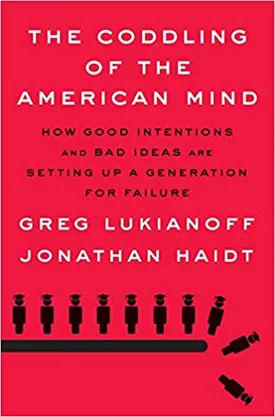Jonathan Haidt
Jonathan Haidt is one of the most renowned authors and psychologists of our time. He is the author of several books on psychological and social topics, including The Righteous Mind, The Coddling of the American Mind, and The Happiness Hypothesis. He is also the host of the popular psychology podcast, Heterodox Academy.
Haidt was born in New York City in 1963, and grew up in the Upper West Side of the city. He studied philosophy and psychology at Yale, graduating with a B.A. in 1985, and subsequently earned his master's and doctorate in social psychology from the University of Pennsylvania (1991). After his doctoral studies, Haidt joined the faculty of NYU, first as an assistant professor, and later as a full professor and researcher in the areas of moral and organizational psychology.
Haidt is best known for his work in moral psychology, which he outlined in his best-selling book, The Righteous Mind: Why Good People are Divided by Politics and Religion (2012). In this book, Haidt draws upon a broad range of moral theories, including evolutionary psychology and psychology of morality. He demonstrates how our judgments of morality are impacted by our experiences, contextual factors, culture, religion and political ideologies. He puts forth a powerful argument for why people are so divided on issues of politics and religion. More importantly, he shows how understanding the underlying psychological principles of why people make different judgments about morality can potentially help us bridge the divide.
In his second book, The Coddling of the American Mind (2018), Haidt proposes that rising rates of anxiety, depression and other psychological disorders among today’s college students is due in part to the “coddling” of young people. He argues that when adults “coddle” (overprotect) young people, it leads them to think in a certain way that prevents them from developing the psychological resilience necessary to navigate difficult challenges like managing social life, career and relationships. To counter this problem, he encourages adults to foster an environment of intellectual exploration, encouraging kids to engage in open dialogue and to take risks, rather than shield them from difficult conversations and ideas.
In The Happiness Hypothesis (2006), Haidt combines findings from psychology and biology to explain how humans can reach a state of joy and contentment in their lives. Drawing from Eastern spiritual practices and Western scientific perspectives, he puts forth the thesis that there are different kinds of happiness and that understanding what makes us happy is a science that can be studied and applied. He argues that our basic emotions such as happiness are hard-wired into us, but that our happiness depends on us creating the right set of contexts - communities, relationships and activities - to bring it out.
Finally, Haidt’s work as the host of Heterodox Academy has brought attention to the importance of open dialogue and an open society. He highlights how essential intellectual diversity is for producing the best solutions to complex problems, and how the lack of open dialogue is creating worrisome polarization in society.
Overall, Jonathan Haidt is an important thinker and leader in the fields of psychology and social sciences. He has written several books on the topics of morality, happiness, resilience and dialogue, which have been widely read and appreciated. His views on difficult topics put forth in his books and podcast are thought-provoking, and have inspired many to think differently about our society, psychology and morality.



